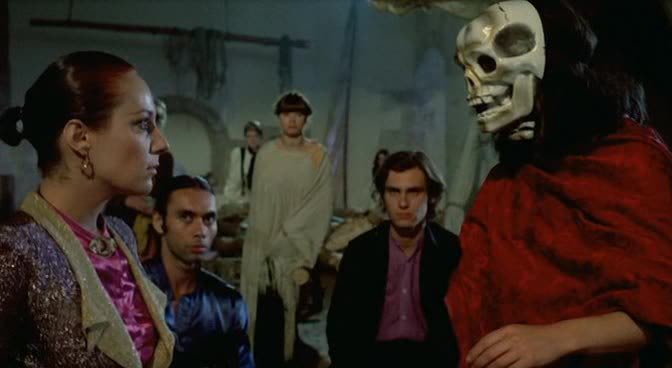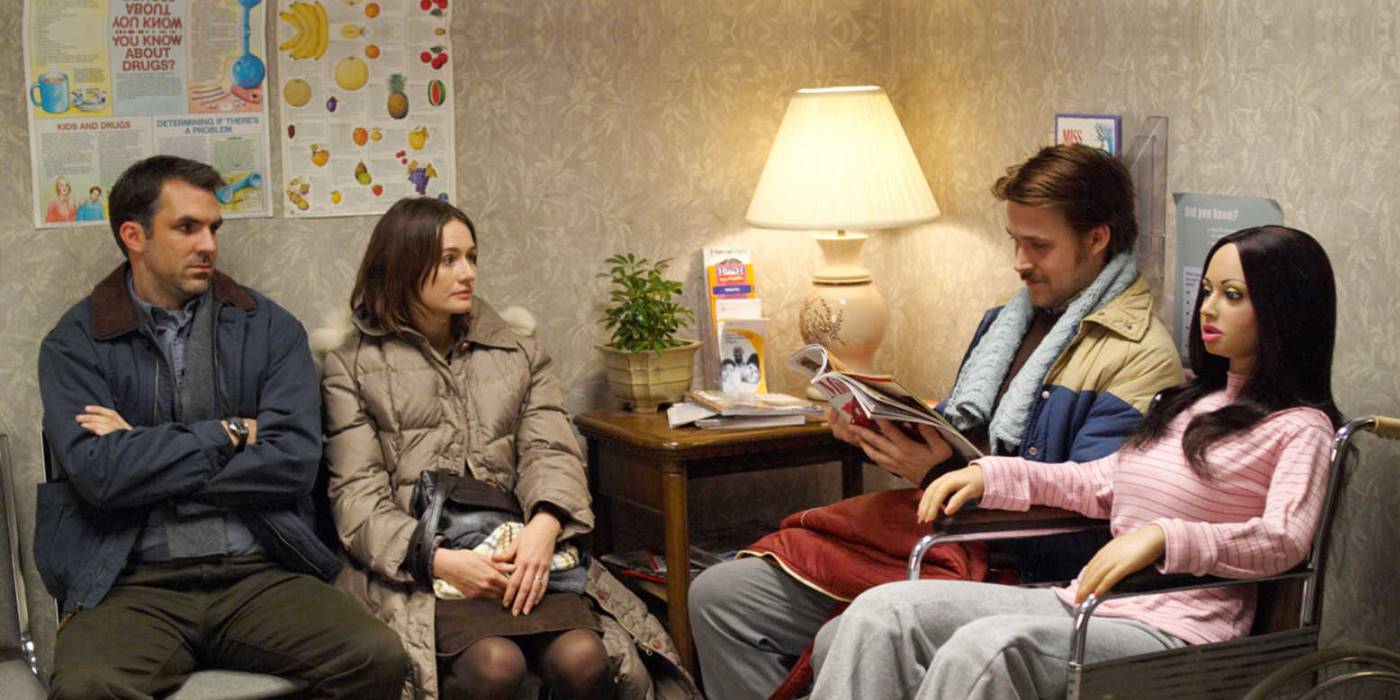#381 - Blair Witch
Adam Wingard, 2016

Twenty years after a filmmaker disappears in the woods while making a documentary, her younger brother launches his own expedition to find her.
Sequels are tough to get right. Even in the best of circumstances, there are still plenty of things that can go wrong and result in the creation of a film that can be disappointing, disrespectful, or just plain disastrous. A lot of it does seem to come down to a question of necessity - how much does a given sequel
need to exist? This is especially true of sequels to films that seem to function just fine as singular entities - while that's not to say that there haven't been successes in that regard (
The Godfather, Star Wars, and
The Terminator are just a few that come to mind), they are few and far between. 1999's
The Blair Witch Project is a film that seems like it is capable of both spawning and resisting sequels (leaving aside the 2000 follow-up
Book of Shadows: Blair Witch 2, which I admittedly have not seen and thus cannot really address). In theory, the basic set-up of ordinary people getting lost in the woods and being at the mercy of an evil spirit could sustain multiple slightly-varied installments, yet it has taken seventeen years for a proper sequel to emerge in the form of the imaginatively titled
Blair Witch. While belated sequels are hardly a new concept, one does wonder if the resulting film would be able to offer a worthwhile follow-up to a film that may not have needed a sequel or even had the potential to support one.
The set-up for
Blair Witch once again invokes the found-footage approach as it centres around the creation of another documentary, this time about young paramedic James' lifelong search for the truth about what happened to his big sister (and
The Blair Witch Project protagonist), Heather. Heather and her friends disappeared completely while filming an amateur documentary about the "Blair Witch", a centuries-old ghost who haunts the woods near a small Maryland town and is allegedly responsible for many unexplained disappearances and deaths. When Heather's footage is posted online by a pair of paranormal obsessives, James decides to head into the woods and takes his friends along for the ride. His best friend Peter and Peter's girlfriend Ashley are there to lend him moral support despite their own skepticism about finding either the Blair Witch or Heather. Meanwhile, film student Lisa wishes to make her own documentary about James' search for the truth, even going so far as to give the others their own hands-free cameras. After meeting up with Lane and Talia, the locals who originally found and posted the footage, the group proceeds to head into the woods. From there, things settle into familiar territory as the expedition starts falling apart. Internal tensions bubble to the surface and the Blair Witch starts making increasingly unsettling and dangerous intrusions as per the original, which only prompts the question as to whether or not the creative duo of director Adam Wingard and writer Simon Barrett can offer any interesting variations.
When it comes to reviewing a sequel, there's an understandable inclination to compare it against its predecessor in order to determine its own worth for better or worse.
Blair Witch can't help but invite a lot of comparisons to its ground-breaking but divisive source to the point where I question whether I can actually cover the film without making explicit comparisons. That being said, even without existing knowledge of the original film one can recognise plenty of flaws with its development. A major one has to do with the characterisation. Even by horror standards,
Blair Witch feels especially flimsy because of how it grants characters potentially interesting back-stories that tend to be left frustratingly underdeveloped instead of intriguingly vague. As a result, character interplay is utilitarian to a fault - James and Lisa's obsessions with finding Heather and filming everything respectively amount to little more than vacant motivations to get the plot going and barely factor into the film at large or inspire anything more than the very occasional tiff with the others. Meanwhile, Peter the skeptic naturally butts heads with true believer Lane at every possible turn. Even so, that's still better than Ashley and Talia being limited to one-dimensional girlfriends for Peter and Lane respectively. It's nice that they establish distinct motives for at least four of the six characters, but even the instances where opposing motives clash against one another don't feel particularly organic.
One would hope that the actual moments of horror in
Blair Witch would compensate for any lacklustre character development, but that really doesn't seem to be the case here. The prospect of being lost in the woods is scary enough even without the prospect of paranormal activity (especially when the resulting stress can cause the characters to become even greater dangers to one another and even themselves), but the ways in which the situation complicates land with dull thuds more so than hard hits. Even the promise of extra preparation on the part of the characters as they bring along a variety of high-tech cameras (including a drone, no less) and walkie-talkies somehow doesn't make any significant difference to the proceedings aside from justifying how everyone can be in on recording the film's footage and thus allowing for more (if not exactly better) angles. While I could easily pick apart the ways in which the film frequently compromises its creepy atmosphere for the sake of shocking an audience with loud noises and jumpy visuals (with editing that sometimes gets choppy enough to result in jump scares over nothing), I'm a little disappointed in how it teases interesting concepts only to do nothing of worth with them. The main offender in this regard definitely was the one that had to do with how time functions in the film, which I reckon is the most interesting new development due to its capacity for influencing how the characters and situation develop. However, its actual usage within the film is sparse to the point of being virtually redundant and only proves more tantalising as the film progresses.
I'm still not sure whether or not
The Blair Witch Project can actually sustain a decent continuation, though
Blair Witch at least shows hints of unrealised potential for variation beyond its generally derivative nature (though that may just make things worse by throwing the flaws into even sharper relief). Unfortunately, the film is content to lean into straightforward escalation and extrapolation upon its source, which is more liable to expose weaknesses in the storytelling as it struggles to handle the many different elements at play. There may be twice as many characters as before but this means that their development is compromised, which results in their interplay failing to contribute much to the horror as a result. Technological advances and an increased budget only end up sanitising the experience in ways that more visceral additions cannot overcome. Though it's not completely lacking in scariness, the terror barely feels earned as the film will skip over more promising facets in favour of expanding upon its weaker moments. As a result, watching
Blair Witch is enough to make a viewer feel like James as he searches for Heather - perpetually chasing after each tiny glimmer of hope regardless of how bad the situation ultimately gets.
 . Which is fine, it's your reviews, but seeing a hooker called a sex worker made me chuckle a bit.
. Which is fine, it's your reviews, but seeing a hooker called a sex worker made me chuckle a bit.









